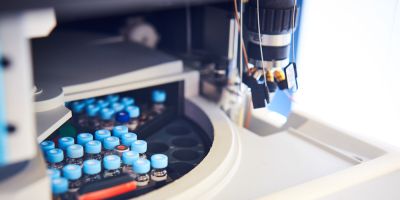BBSRC project to accelerate development of natural colorants

A new collaborative research project at The University of Leeds funded by the Biotechnology and Biological Sciences Research Council (BBSRC) seeks to find high value colorants from food waste.
The project is led by Dr Richard Blackburn in the School of Design and is collaborative with Professors Chris Rayner and John Blacker in the School of Chemistry.
Anthocyanins are natural pigments found in fruits, vegetables and flowers. Interest in anthocyanins has increased substantially recently as the food and cosmetics industries seek natural ingredients to replace synthetic dyes.
However, use of anthocyanins in food and cosmetics presents a number of challenges including stability, compatibility with the food or cosmetic product, and achieving the desired colour. One option for improving stability and application compatibility is modifying the pigments.
In a previous six-month research project funded by the BBSRC FoodWasteNet Network in Industrial Biotechnology and Bioenergy, the team demonstrated that modifying anthocyanins with natural fatty acids was possible, using enzymes to join the two compounds together.
This BBSRC Follow-on Funding project will improve these methods to develop new, high-value, naturally-derived colorants on a scale that is commercially viable for food and cosmetic applications. This project is likely to result in the commercialisation of new products with economic impact in different industrial fields benefiting the whole value chain.
The project also has significant industry involvement, with University of Leeds spin-out company Keracol Limited, owners of the cosmetic brand Dr. Craft, evaluating cosmetic applications, and Nestlé Product Technology Centre in York evaluating confectionary applications.
The project starts 1st February 2019 and runs until 31st May 2020.




